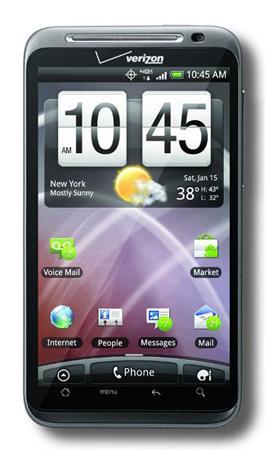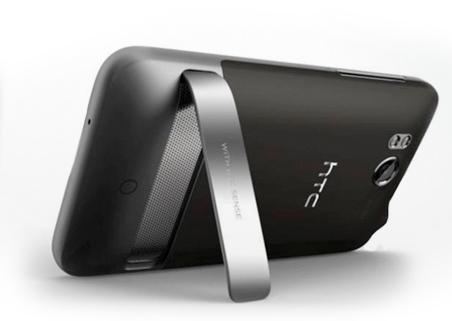
Day one of CES will soon be coming to a close and we've already been introduced to countless Android phones and tablets, some of which were a complete surprise. We knew the big ticket item of this year's show would be Android and 4G, but we also expected it to mainly be a handful of tablets making debuts, not many phones.
One device that wasn't a surprise though, was the HTC ThunderBolt. We weren't exactly sure of the official name and many of its specifications, but we knew it would be announced at some point, thanks to HTC's hints and tips. Earlier today, those specifications were given to us at the massive, Verizon LTE event. There was a lot of hype about the ThunderBolt and what it would mean for Android prior to this week, but now that it has been announced, I would have to say that it's quite a letdown.
We've been introduced to nearly 15 phones thus far, and of those phones – in terms of specs alone – the ThunderBolt is one of the least impressive devices yet. The rumors had us thinking that it would have a Tegra 2 dual-core processor, but just a few hours ago, we learned that it actually just has a 1 GHz Snapdragon. While a Snapdragon processor isn't bad at all, the competition is bringing the heat with dual-core processors, leaving this baby in the dust.

It was expected that HTC would improve upon arguably one of their best phones yet, the EVO 4G, but under the hood, the ThunderBolt is almost identical to its WiMAX cousin. The only differences are the Super LCD instead of basic LCD, 768MB of RAM versus 512MB, LTE connection versus WiMAX, and a Dolby surround sound speaker on the back. One nice little Easter egg though, is the pre-installed 32GB microSD card. That's sure to entice some users.
Personally, I was looking forward to the ThunderBolt. Specs aren't everything when it comes to phones; build quality, form, and an overall smooth experience can carry more weight than what kind of processor the phone has. But when we're talking about single- and dual-core processors, we're also talking about shelf life, too. A jump from a 800 MHz processor and 1 GHz processor isn't that large, but a jump from single-core to dual-core is a substantial difference. Single-core processors may eventually get cut out of the line of Android updates, though it looks like Android is trying to avoid such a fine cutoff point.
No, the ThunderBolt isn't the only phone that has been announced with single-core processor, but many of us wanted it to be the phone that changed the game. It looks like the Bionic 4G, Atrix, or Optimus 2X may have to take on that task.
If we know nothing else, one thing is for sure. There will be plenty of options later this year – maybe too many. So if the ThunderBolt doesn't meet your smartphone needs, there will definitely be something else to choose from. With that said, is the official spec sheet of the ThunderBolt enough to turn you away? Or is it still the phone at the top of your wish list? Also, who got the sweeter pick of the crop in Android phones so far, AT&T or Verizon? There are still three days left of CES, so stay tuned!